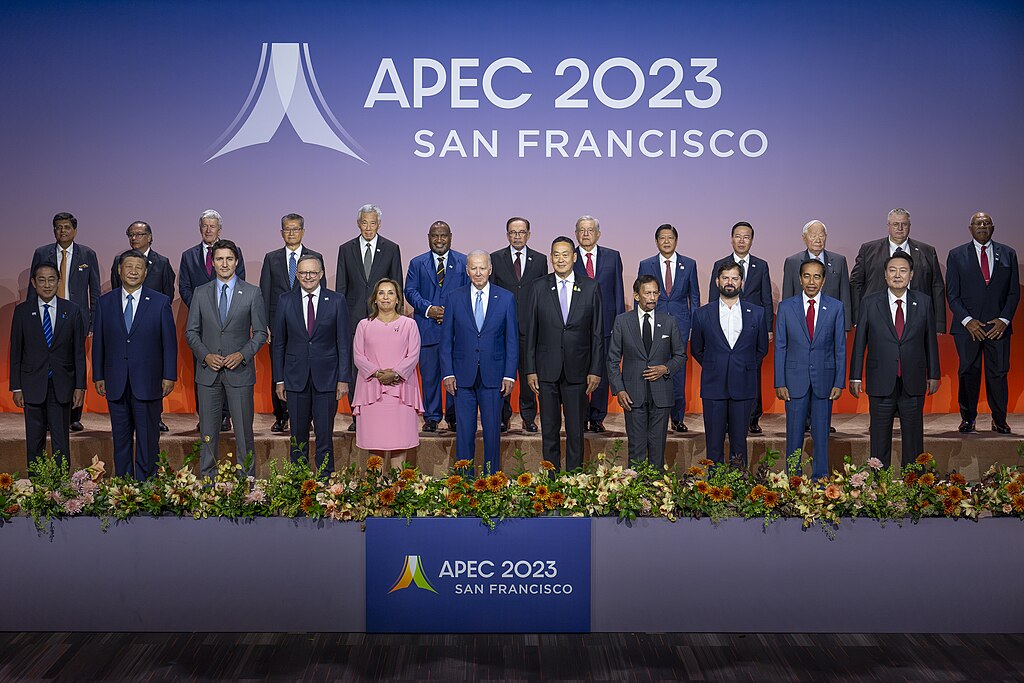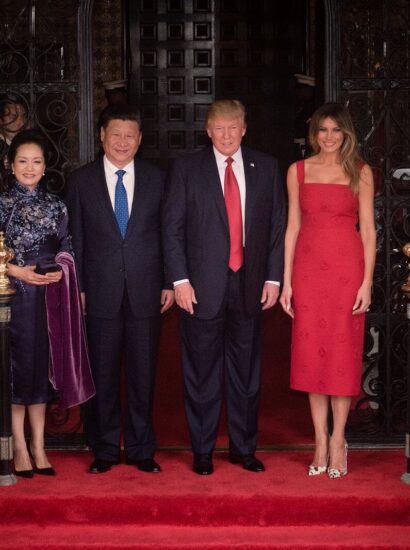Who controls cross-border data flow? The answer to this question greatly determines the outcome of the great power rivalry. In the United States, legislation increasingly aims to push China out of the American data market, while Beijing consistently emphasizes security in its data policy. As the issue over data generates increasingly visible geopolitical tensions, Elon Musk appears on the scene with a bold step.
ByteDance Has to Find a U.S. Buyer. The Clock is Ticking
Relationship between the high-tech sector and great powers shows significant change. Recent events underline this emerging trend. At the end of April, Elon Musk went on a surprise visit to China, just after U.S. President Joe Biden signed the so called TikTok Act into law. Commentators overlooked this interesting coincidence, the two events have more in common than it seems for the first sight.
President Joe Biden signed a bill into law that bans TikTok in the US. It gives ByteDance, the Chinese firm which owns the short video app, about nine months to sell the company. Here is what will likely happen next for TikTok https://t.co/Pkx6SAltAE pic.twitter.com/9K8gXlzE8k
— Reuters (@Reuters) April 24, 2024
Biden signed the Protecting Americans from Foreign Adversary Controlled Applications Act (TikTok Act) on the 24th of April, after Congress voted it with bipartisan support at the end of March. The legislation directly targets TikTok’s parent company Bytedance, further highlighting the China-threat dominates the American public. The bill was signed into law on the 24th of April, which technically means, ByteDance now has a nine-month period to divest and locate an American buyer for TikTok. Additionally, the president has the authority to extend the deadline by another 90 days. This implies that, without a sale, TikTok could potentially shut down in the U.S. no sooner than one year from the present. As observers underlined, TikTok is currently engaged in a legal struggle for survival in the U.S. courts. Its other option is to pursue a deal that could salvage some value from its U.S. operations. However, it faces resistance from Beijing and uncertain interest from potential U.S. buyers.
If unsuccessful, this could spell the end for TikTok’s U.S. business, which is central to its global operations. Such an outcome would be a significant blow to the most internationally successful internet app originating from China.
Musk’s Surprise Visit
On the 29th of April, Elon Musk went to China on a surprise visit to negotiate a launch of a revolutionary self-driving technology. Chinese officials informed Tesla that Beijing has given provisional approval for the company to introduce its Full Self-Driving (FSD) software feature in the country, according to sources familiar with the matter on Monday.
The U.S. electric vehicle manufacturer will implement its autonomous driving services using mapping and navigation functionalities provided by Chinese tech giant Baidu.
After a series of meetings with top officials in Beijing, the Chinese government has signalled its support for Tesla to launch its advanced driver-assistance service in the carmaker’s second-largest market. Tesla’s CEO intends to expand the use of this controversial software feature globally, starting with the Chinese market. According to the Wall Street Journal, approval would also allow Tesla to compete with domestic suppliers of autopilot technology, such as Huawei Technologies, Baidu, and WeRide, a startup backed by investors including Nvidia and XPeng.
What ties these two issues together is the growing significance of data in global politics.

New Tesla model at a car dealership (Source: Pexels.com)
Due to its Chinese origins, ByteDance has long been seen as having close ties to the Chinese Communist Party. Chinese companies are subject to strict regulations, meaning ByteDance may be compelled to share data with Chinese authorities through its parent company. The protracted struggle culminated in the passing of the TikTok Act, officially known as the Protecting Americans from Foreign Adversary Controlled Applications Act.
Former President Donald Trump initiated action against the Chinese-owned social media platform in 2019 with Executive Order 13873, which aimed to secure information and communications technology (ICT) supply chain. However, it was never signed into law, the RESTRICT Act was also approved by Congress in 2023 potentially leading to the ban of certain applications. This Act would have allowed the U.S. Department of Commerce to investigate and ban IT products and services deemed national security threats from foreign sources.
This act can be seen as an extension of the 2018 CLOUD Act, which enables US authorities to request data from servers outside the US, leading to concerns of global data dominance by the U.S. Chinese critics argue that these laws position the U.S. as a data hegemon, excluding China from cross-border data flows. Additionally, U.S. actions suggest that the regulation of cross-border data flow is primarily a geopolitical issue, as seen in the Foreign Investment Risk Review Modernization Act of 2018 and executive orders by President Trump targeting foreign investments in the ICT sector.
Data Guarantees Success… and Power
With the newly signed TikTok Act, Musk visited Beijing amidst an escalating conflict over data governance between the U.S. and the PRC. The timing can hardly be seen as a coincidence.
The core of the proposed agreement over Tesla’s FSD technology is, again, data. Musk met with Chinese premier, Li Qiang to negotiate the company’s electric vehicles data security compliance. If the Chinese authorities decide in Tesla’s favour, the company may strengthen its lagging position in its second largest market.
It teamed up with Baidu, China’s number one internet provider to gather and analyse data needed to improve FSD technology. According to analysts talking to Financial Times, “Baidu will be a data gatekeeper, including backing up data and overseeing transfers to Tesla’s Shanghai data centre and then potentially abroad”.
This collaboration might enable Tesla to strengthen its legal and market positions in the PRC, but it could weaken them in other markets, particularly in the West. However, the legislative process to ban TikTok dates back to the mid-2010s. Since the 1990s, the digital domain has increasingly become a security issue in the United States.
While cyberterrorism was primarily the focus in governmental narratives in the early 1990s, over time, the issue received increasing attention in foreign policy discussions.
In her 2009 speech, Secretary of State Hillary Clinton identified Internet freedom and data security as two priorities for the 21st century. This shift was largely prompted by intense cyberattacks originating from China and other authoritarian states.
As technology advanced, these external threats became more sophisticated. The concept of a single, global internet disappeared, and the tracking and analysis of rapidly expanding user data created new methods of social control, strengthening the power of regimes hostile to the U.S.
Such fears are not groundless. Shortly after taking power, Chinese President Xi Jinping put emphasis on scientific advancement, among others, on big data technology. In his visit to the Chinese Academy of Social Sciences in 2013, Xi talked about the importance of data. According to reports, he said “the vast ocean of data is like the oil resources of the industrial society, containing huge productivity and business opportunities, who masters the big data technology, who will grasp the resources and initiative of development”.
Since then, China adopted a vast amount of laws that strengthen data sovereignty. The term refers to the PRC’s attempt to gain massive control over dataflow.
The keyword is security. Under the banner of digital sovereignty, particularly in China, applications such as Facebook, Google, YouTube, Instagram, WhatsApp, and others have long been banned, preventing Chinese citizens’ data from reaching these companies. Additionally, the “Great Chinese Firewall” has blocked access to major foreign news sites and other platforms for decades. Consequently, a unique “Chinese internet” has developed, where local applications cater to various needs.
If Musk succeeds, Tesla will get bigger access to the strictly controlled market of 1.4 billion people, where data is one of the most valuable asset. But Tesla will have to comply, meaning, theoretically it will not be allowed to use the data gathered there outside of China. It will have to set up parallel operations, build its own great firewall between the markets.
Tesla May Find Itself in the Middle of Geopolitical Rivalry
Steps are expected to be taken by US authorities. Days before Musk’s departure, the National Highway Traffic Safety Administration opened an investigation into Tesla’s more basic driver-assist system, which the authority said is linked to avoidable crashes and fatalities. While the investigation probably does not relate directly to the geopolitical tension around data between the U.S. and China, Tesla is certainly facing difficulties in the American market.
The U.S. government is, of course, more concerned with the threat from China. Throughout the securitization process, the PRC has gradually moved to the center of the debate. It first appeared in the speeches of American presidents and high-level officials, then, with the Trump administration, it was directly named in related legislative documents. While these documents aim for stricter regulation and greater control over digitalization and data flow within the U.S., they can hardly be seen as merely domestic legislative procedures.
The issue has an increasingly geopolitical dimension, and the American government’s discursive and legislative efforts have strong foreign policy intentions.
This complexity can be understood in the dual effect of American policymaking. On one hand, it aims to lock China out of the American market. On the other hand, American foreign policy also aims to lock others in through various cooperative measures. The Data Free Flow with Trust (DFFT) initiative is among those diplomatic tools aiming to lock in partners and dominate cross-border data flow. It would simultaneously serve the interests of tech companies by ensuring the free flow of data and safeguarding user rights. This trust-based collaboration can naturally only operate with allies. Therefore, the United States promotes this mechanism in multilateral cooperation frameworks such as the G7 or in negotiations with the European Union. This also includes the Cross Border Privacy Rules (CBPR) organized within the Asia-Pacific Economic Cooperation (APEC), of which seven countries (Canada, Japan, the Republic of Korea, the Philippines, Singapore, Chinese Taipei, and the US) in the region are members.

President Biden participates in a family photo with APEC in 2023 (Photo: Wikipedia.org)
Tesla vs U.S. vs China: This is Just the Start
The tension is expected to further escalate. American elites are increasingly pushing for the securitization of data governance. The National Intelligence Council’s (NIC) Global Trends 2040 report published in 2021 is a good example of how data becomes a key issue in American foreign policy.
According to the document, authoritarian regimes would thrive in a siloed world characterized by “further weakening of Western-origin norms, particularly on human rights, open commerce, and collective defense.” A heavy reminder for Musk that he is crossing a line in DC.







